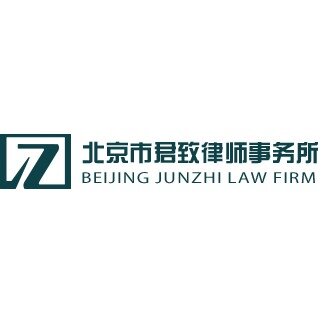Best Debt Capital Markets Lawyers in China
Share your needs with us, get contacted by law firms.
Free. Takes 2 min.
Or refine your search by selecting a city:
List of the best lawyers in China
About Debt Capital Markets Law in China
Debt Capital Markets (DCM) involve the issuance and trading of debt securities such as bonds, notes, and other financial instruments. In China, the DCM plays a crucial role in helping corporations, financial institutions, and governmental entities raise funds for various projects and business operations. The Chinese DCM consists of both domestic and offshore markets, each with its own regulatory landscape and procedures. Over the past decade, China's DCM has experienced significant growth, becoming one of the largest bond markets globally with increasing participation from both local and international investors.
Why You May Need a Lawyer
Dealing with Debt Capital Markets in China can be complex due to rigorous regulations, evolving legal frameworks, and significant market reforms. You may need a lawyer if you are:
- Planning to issue bonds or other debt instruments in China's domestic or offshore markets
- An international investor or company seeking to participate in China's DCM
- Faced with regulatory compliance questions or enforcement actions
- Negotiating terms with underwriters, rating agencies, or legal authorities
- Handling disputes related to defaults, restructuring, or investor claims
- Structuring cross-border transactions or exploring the Panda Bond and Dim Sum Bond markets
- Assessing tax implications and documentation requirements for debt financing
A skilled DCM lawyer can help you navigate these issues, protect your interests, and ensure compliance with local regulations.
Local Laws Overview
Several key legal and regulatory aspects govern Debt Capital Markets in China. Important features include:
- Regulators: The major regulators are the China Securities Regulatory Commission (CSRC), the People’s Bank of China (PBOC), and the National Association of Financial Market Institutional Investors (NAFMII) for interbank markets.
- Types of Bonds: China issues government bonds, municipal bonds, enterprise bonds, corporate bonds, and financial bonds. Foreign entities can also issue Panda Bonds onshore and Dim Sum Bonds offshore.
- Issuance Approval: Issuers typically need approvals or filings with relevant regulators. The requirements can vary significantly based on the type of bond and issuer.
- Disclosure: Comprehensive information disclosure obligations aim to protect investors and promote market transparency.
- Foreign Investment: Rules exist to facilitate international participation, though some restrictions and quotas still apply.
- Default and Enforcement: Bond defaults follow specific legal procedures, and restructurings or enforcement actions often require negotiation under the supervision of local courts and regulators.
- Taxation: Tax treatments for issuers and investors may differ depending on the instrument, with some preferential policies possible. Consulting a lawyer ensures compliance and optimization.
Frequently Asked Questions
What is a Panda Bond?
A Panda Bond is a Renminbi-denominated bond issued by non-Chinese entities in the Chinese domestic bond market. It allows foreign governments, multinationals, and financial institutions to raise capital from Chinese investors.
Who regulates the Debt Capital Markets in China?
The key regulators are the China Securities Regulatory Commission (CSRC), the People’s Bank of China (PBOC), and the National Association of Financial Market Institutional Investors (NAFMII), depending on the market segment.
Can foreign companies issue bonds in China?
Yes, foreign companies and financial institutions can issue Panda Bonds in China, subject to meeting specific regulatory, legal, and disclosure requirements.
What are the main stages of issuing a bond in China?
The main stages typically include preparing offering documents, obtaining necessary approvals or regulatory filings, appointing intermediaries, conducting disclosure, and marketing the bond to investors.
What disclosures are required for a bond issue?
Issuers must disclose detailed financial information, business operations, risks, use of proceeds, and details about the bond structure to provide transparency and protect investors.
How are bond defaults handled in China?
Bond defaults are addressed through regulatory supervision, involvement of courts if needed, and negotiations for restructuring or repayment. Recent reforms have aimed to strengthen investor protection and improve court processes.
What role do rating agencies play?
Rating agencies assess the creditworthiness of the issuer and bond. Both local and some international rating agencies are used depending on the market targeted and investor preferences.
Are there restrictions on repatriating funds from China after a bond issue?
Certain restrictions and reporting requirements may apply when repatriating funds overseas, particularly for foreign issuers and investors. A legal adviser can help navigate these complexities.
What taxation applies to bond issuers and investors?
Taxation depends on the residency of the issuer and investor, type of bond, and specific government incentives. China may withhold taxes on interest income, but exceptions or preferential rates may apply in certain circumstances.
How do I get started with a debt issuance in China?
Engage with qualified local legal and financial advisors early in the process to understand regulatory requirements, plan the issuance structure, and ensure compliance every step of the way.
Additional Resources
If you need further insight or regulatory guidance, the following resources and organizations are useful:
- China Securities Regulatory Commission (CSRC)
- People’s Bank of China (PBOC)
- National Association of Financial Market Institutional Investors (NAFMII)
- China Central Depository and Clearing Company (CCDC)
- Shanghai Stock Exchange and Shenzhen Stock Exchange (for listed bonds)
- Reputable local and international law firms with Capital Markets expertise
- Chambers of commerce and trade organizations for foreign issuers
- Financial media outlets covering China’s capital markets
Next Steps
If you are considering issuing bonds, investing, or facing regulatory questions in China’s Debt Capital Markets, consider the following actions:
- Identify your specific goals in the DCM space, such as raising capital, investing, or restructuring
- Gather basic documentation regarding your business and proposed transaction
- Consult a qualified legal advisor who understands both China’s laws and DCM best practices
- Discuss tax and regulatory implications with relevant professionals
- Contact regulatory bodies or seek guidance from industry associations if needed
- Stay informed of market developments and regulatory changes impacting DCM activities in China
Working with experienced legal counsel helps you anticipate regulatory hurdles, avoid costly mistakes, and successfully participate in China’s rapidly evolving Debt Capital Markets.
Lawzana helps you find the best lawyers and law firms in China through a curated and pre-screened list of qualified legal professionals. Our platform offers rankings and detailed profiles of attorneys and law firms, allowing you to compare based on practice areas, including Debt Capital Markets, experience, and client feedback.
Each profile includes a description of the firm's areas of practice, client reviews, team members and partners, year of establishment, spoken languages, office locations, contact information, social media presence, and any published articles or resources. Most firms on our platform speak English and are experienced in both local and international legal matters.
Get a quote from top-rated law firms in China — quickly, securely, and without unnecessary hassle.
Disclaimer:
The information provided on this page is for general informational purposes only and does not constitute legal advice. While we strive to ensure the accuracy and relevance of the content, legal information may change over time, and interpretations of the law can vary. You should always consult with a qualified legal professional for advice specific to your situation.
We disclaim all liability for actions taken or not taken based on the content of this page. If you believe any information is incorrect or outdated, please contact us, and we will review and update it where appropriate.
Browse debt capital markets law firms by city in China
Refine your search by selecting a city.














